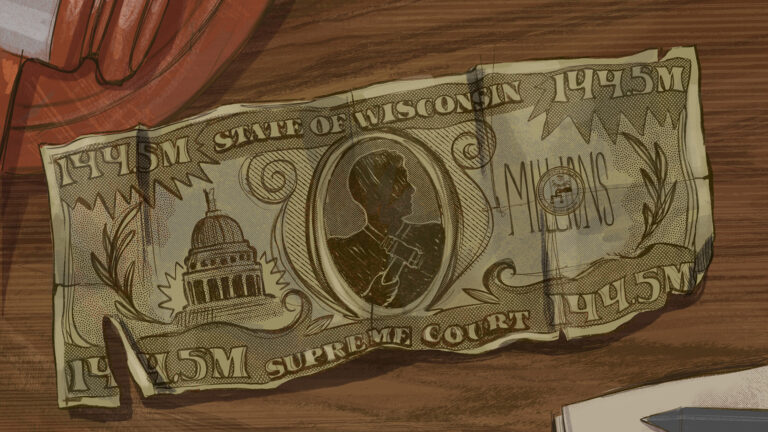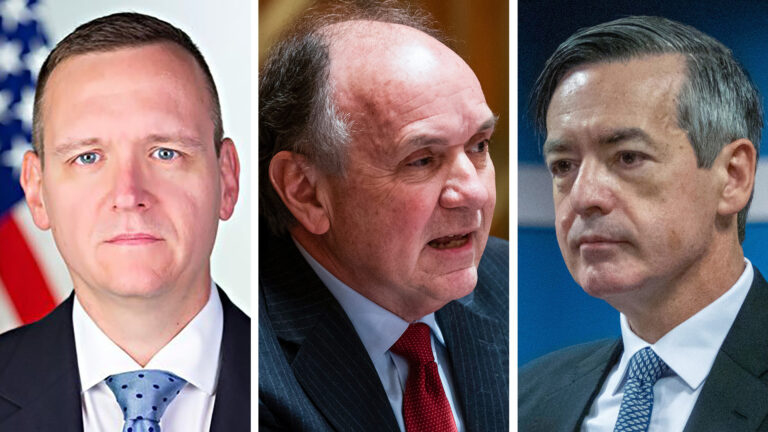Frederica Freyberg:
But first, it’s called the If You Like Your Health Plan, You Can Keep It Act. It’s in response to growing concern that some private policyholders may be losing their plans under the Affordable Care Act. The author is Wisconsin senator Ron Johnson, and he joins us now from Milwaukee. Senator, thanks for being here.
Ron Johnson:
Hello, Frederica. How you doing?
Frederica Freyberg:
I’m well. Tell us what your legislation would do.
Ron Johnson:
Well, within the original Affordable Care Act there was a grandfather clause. It was a just a phony clause. It didn’t actually grandfather in any healthcare plan other than possibly a union plan under contract. So all we really did is we utilized the exact same language. We just pulled out the mandates for all the additional coverage, and we actually have created a real grandfather clause. So the fact of the matter is, now if you did like your health care plan, you will be able to keep it, if we can get Democrat support in the senate and President Obama to be willing to sign it so he can honor that promise.
Frederica Freyberg:
There are actually a few, a small numbers of plans, that are actually grandfathered though, isn’t that right?
Ron Johnson:
You had to have a plan that totally complied with all of Obamacare mandates, or it had to be a healthcare plan that was contained within a union contract. Those were the only plans grandfathered. We’re just saying Americans should have the freedom to choose, just like President Obama promised, that if they like their health care plan, they can keep it. It’s pretty simple.
Frederica Freyberg:
It’s so simple, in fact, doesn’t it implode the Affordable Care Act altogether?
Ron Johnson:
It really shouldn’t. And let’s face it, if the Affordable Care Act was dependent upon Americans losing their freedom to chose a product they actually wanted to buy in terms of covering their own healthcare expense, that’s a real problem I think with the law.
Frederica Freyberg:
What kind of support are you seeing for this legislation?
Ron Johnson:
Well, we already got, I believe, 40 cosponsors of Republican senators, which you’d say would be expected, but that’s actually kind of unusual with a piece of legislation introduced just a couple days ago. I’ve certainly handed personally the text of my bill to a number of Democratic senators and really hoping that anybody that voted for this bill as a member of congress, so first question I ask, did you believe President Obama? Did you really think that if people liked their healthcare plan, they’d be able to keep it? Anybody who voted for that law hopefully will join us in pushing this piece of legislation so that promise can be honored.
Frederica Freyberg:
Now, a lot of discussion has been around these policies being cancelled, but isn’t it actually more correct that they’re being changed and updated to comply with the ten essential benefits in the Affordable Care Act?
Ron Johnson:
Well, some are being cancelled, some are being modified to comply. But, you know, what’s ending up happening is even those that’s being modified, they having to comply with all the mandates and it’s driving up the cost. But Frederica, one of the reasons I really pushed this bill when I did is, we’re certainly getting a number of Wisconsinites calling into our office, some of them in kind of a panic. In particular there was a couple. They both have cancer. The wife has stage 4 lung cancer. The husband is recovering from prostate cancer. They were in the high-risk pool, the state high-risk pool, which really works. That’s basically going extinct. So they got their cancellation notice, tried to log on to healthcare.gov close to 40 times. Couldn’t get through. And so we helped them get in connection with some of the insurance plans insurance companies, that will be offering plans. They’re starting to get quotes. Here’s the real sad fact. Under the state high-risk pool, their maximum annual exposure would be about $20,000. It's looking like they're– now their maximum exposure will be about $40,000. So their cost of healthcare may have doubled. And the only way that may be mitigated is if the American taxpayer will pick up part of that tab through the subsidies.
Frederica Freyberg:
Again, they were not eligible for any subsidies through that marketplace?
Ron Johnson:
They probably will be, but, again, the implementation of the website’s been a mess. They couldn’t log on. They’re really not quite sure. It’s looking like– because we’re getting some information from the insurance carriers. They might get about $10,000 worth of premium subsidies. But again, their exposure is doubling from $20,000 to $40,000, and that’s not lowering the cost curve. That’s increasing the cost curve of healthcare.
Frederica Freyberg:
In terms of– and I understand that issue of the high-risk pool, that program that did exist in Wisconsin until the Affordable Care Act came along, but in terms of other people potentially in the individual market who have received these letters that their policies might be cancelled, can it be said that some of the policies that people liked and want to keep were kind of ultra inexpensive and possibly nearing kind of the catastrophic kind of plan? Some people might have even called those kinds of plans junk insurance?
Ron Johnson:
Well, don’t you believe individuals should have the freedom to choose how much healthcare they want to buy, what kind of insurance plan? If people want to support a $5,000 deductible risk and buy a higher deductible plan like that, don’t you think Americans should have that freedom? I certainly do. So again that should be individuals’ choice. And by the way, when we talk about allowing Americans the freedom to, let say, buy healthcare across state lines, one of the reasons that actually works is if people want to go to a state that also has lower mandates, which means lower healthcare insurance costs. That should be their freedom to be able to choose to do that.
Frederica Freyberg:
So bottom line, though, Senator, this legislation, which, as you described, you know, is kind of simple on its face, you’d really just as soon ditch the entire law.
Ron Johnson:
Well, the only way that President Obama can honor that promise to Americans is to fully repeal the law because, again, unfortunately I can’t do anything to preserve the health– the high-risk pool for that couple with cancer. So my piece of legislation, though, will allow millions of Americans, possibly tens of millions of Americans, to keep the healthcare plan that they like, that they could afford, not be forced into coverages with higher mandates and higher costs.
Frederica Freyberg:
All right. Senator Ron Johnson, thank you very much for joining us on this.
Ron Johnson:
Have a good day.
Frederica Freyberg:
The office of the Commissioner of Insurance in Wisconsin reports it has no information on consumers whose plans might have been cancelled by insurers. OCI does say that if an insurer cancels a plan without having something to replace it, that would be actionable by the commissioner. On Wednesday, President Obama pushed back against the healthcare law’s critics. Speaking in Boston, Obama said less than 5% of American are getting cancellation letters because their current plans don’t cover minimum benefits required under the law. He said thanks to the law, they will now be able to sign up for new plans that cover those benefits, such as maternity care and prescription drug coverage. And, he said, they might even pay less for those plans if they qualify for tax credits in the marketplace.
Barack Obama:
So for people without health insurance, they’re finally going to be able to get it. For the vast majority of people who have health insurance that works, you can keep it. For the fewer than 5% of Americans who buy insurance on your own, you will be getting a better deal.
Search Episodes
News Stories from PBS Wisconsin

Donate to sign up. Activate and sign in to Passport. It's that easy to help PBS Wisconsin serve your community through media that educates, inspires, and entertains.
Make your membership gift today
Only for new users: Activate Passport using your code or email address
Already a member?
Look up my account
Need some help? Go to FAQ or visit PBS Passport Help
Need help accessing PBS Wisconsin anywhere?

Online Access | Platform & Device Access | Cable or Satellite Access | Over-The-Air Access
Visit Access Guide
Need help accessing PBS Wisconsin anywhere?

Visit Our
Live TV Access Guide
Online AccessPlatform & Device Access
Cable or Satellite Access
Over-The-Air Access
Visit Access Guide
 Passport
Passport


















Follow Us